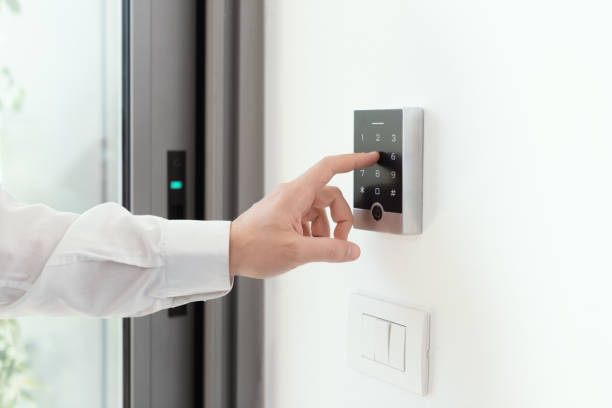Did you know that gas leak signs can lead to severe consequences if not addressed immediately?
The dangers surrounding a gas leak can be life-threatening and sometimes fatal. More often than not, a leak can go unnoticed for quite some time, and even the smallest of leaks can have devastating results.
If you have a gas stove in your home, you must learn the gas leak signs so you can prevent an emergency. Wondering what those signs are?
Keep reading for some quick and easy ways to recognize and avert potential danger.
Contents
Strong Sulfur Odor
The ability to recognize gas leak signs before they become an emergency is essential. One of the first signs to be aware of is smelling a strong sulfur odor.
This smell is a sign of a gas leak, often caused by repairs or the installation of a natural gas tank. Noticing a distinct, chemical-like smell is a top indication to be aware of.
If you detect a strong odor of sulfur that smells like rotten eggs, it is important to take immediate action, as this could be a sign of a gas leak. You should first open all your windows and evacuate the area as quickly as possible until the gas dissipates.
It is also important to turn off the gas immediately and contact a professional, like your local gas company or emergency services. If the gas company detects a gas leak, you should refrain from using any power sources, such as computers, TVs, or any appliances, until the problem is fixed.
Hissing or Whistling Noises
One of the most obvious signs of a potential gas leak is a hissing or blowing noise, typically coming from a pipe, appliance, or inside your walls or ceilings. If you notice any hissing sounds like this, it’s important to take them seriously and take action right away.
Make sure you check all your appliances, water heaters, and furnaces to make sure they are off. If they are turned off, investigate any piping or connections to see if you can identify where the sound is coming from.
Immediately move any family members and pets away from the area and leave the building. If there is a strong smell of gas, do not ignite any source of flame, turn off the gas source if you can, and leave the area.
It is important to understand these signs before they become emergencies. Take steps to remediate the situation as quickly as possible.
Dead or Dying Plants in a Small Area
One such sign is the presence of dead or dying plants in a small area. When gas levels become too high for an extended period, the surrounding soil can become toxic.
This will lead to stunted growth and long-term damage to plants in the affected area. If you notice an area of your property with dead or dying plants and no identifiable cause, it is important to consult a professional.
Conduct tests to identify if there is a gas leak present. Taking preventive measures can help prevent harm to the environment, humans, and animals.
Checking windows and gratings for the accumulation of dangerous gases is another prudent precaution. Evaluating the signs and having them fixed immediately can help save money for the property’s owner in the long run.
Bubbles in Standing Water
Common signs include a sharp odor or the presence of hydrogen bubbles in standing water. If you observe bubbles forming in standing water, such as water in a sink, toilet, or puddle, it can be a result of gas or other dangerous substances entering the water supply below.
When a flammable gas like natural gas or propane is present and leaks, it will likely contain H2 bubbles. If you see hydrogen bubbles in standing water, even if the gas doesn’t have a distinct odor, you should evacuate the area and call the fire department immediately.
Bubbles in standing water can be one of the early signs of a gas leak and should be taken seriously. Leaking gas can also cause noticeable health problems, including headaches, nausea, dizziness, and rashes.
To investigate a potential gas leak, contact a plumbing professional or call your local utility company. Once confirmed, the necessary steps can be taken, such as gas leak repair and restoring safety in the area.
Discolored Vegetation
Discolored or dead vegetation is a common sign of a gas leak, both outdoors and inside. The gas may kill vegetation, turning it yellow or brown, or cause patches of discolored vegetation alongside healthy plants.
If these signs are visible near an installation of piping, it’s important to take action as soon as possible before the issue escalates into an emergency. The presence of gas both in the atmosphere and in the soil can poison plants, leading to visible discoloration.
Gas that continues to leak directly onto vegetation can cause a burning type of death, killing the plants suddenly. A more gradual leak may lead to discoloration and wilting of the vegetation.
If vegetation, soil, or even drinking water seem to show signs of discoloration, it is essential to investigate the problem and take appropriate action.
It might be as simple as trimming away dead, discolored foliage or as complex as scheduling repairs or replacement of the gas line. Whatever it is, it’s important to take action to ensure the gas safety of everyone in the area and the environment.
High Gas Bills
Gas leaks are hazardous, and they can cause expensive gas bills. Learning the signs of a gas leak before it becomes an emergency is important.
High gas bills often indicate a gas leak and are a telltale sign that something is wrong. If you compare your gas bills for the same period each year, you should be able to identify any increases.
If a gas bill is unusually high, homeowners should check their gas appliances and connections to ensure they are all functioning properly and not leaking. It’s important to pay attention to these signs, as gas leaks are extremely dangerous.
Ignoring these signs could be deadly and even cause catastrophic property damage. Therefore, act quickly to fix the leak and pay attention to even the slightest changes in your gas bill.
Feeling of Suffocation
Preventing gas leaks is important for keeping the home and family safe. Understanding the signs of a gas leak and then taking action before they become an emergency is an important step in preventing those leaks.
A feeling of suffocation is one of those signs. If a family member or pet suddenly feels as if they’re suffocating, the chances of a gas leak are high.
Therefore, it’s important to check that area carefully and to note if there is an odor of gas or if anyone else in the house is in the same condition. If this is the case, contact your local utility company, disconnect the main line to your home, and seek fresh air.
It is also important to inform family members and neighbors of the leak and take the necessary steps to get it fixed as soon as possible. Taking these steps can save lives and property from the dangers of gas leaks.
Visible Smoke
Visible smoke is a common sign of a gas leak. Understanding the signs of a gas leak before it becomes an emergency can help prevent serious injury or death.
Keep an eye out for any visible smoke near tanks and pipes. This could look like a fog-like haze appearing in the air or even a cloud-like mist.
While these sights may not be cause for alarm, it’s important to scan the area for similar instances, as the gas may be coming from the same source. If you do see visible smoke, leave the area and call a gas company immediately.
Be aware of any unusual hissing or whistling coming from the gas line, as it may be an indication of a gas leak. Also, be aware of dead or dying vegetation around gas lines, as this could mean a gas leak.
Recognizing Gas Leak Signs
Gas leaks can cause a lot of damage and become an emergency quickly. It is important to understand gas leak signs before they become a problem.
Familiarizing ourselves with how to detect a gas leak and what to do if we find one can make all the difference. Taking the time to understand gas leak signs and create a plan of action can help keep our homes and families safe.
For more informative articles, visit some of our other blog posts.



